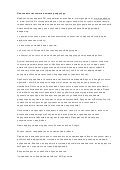

And then you would be rewarded with that wonderful Eureka! moment when you remembered that the word that was on the tip of your tongue was ‘birthday’. If, for some reason, you were trying to find the name of a song that you know began with the word ‘happy’ and ended with the phrase ‘to you’, you might search Google for ‘happy * to you’. This can be particularly useful if you’ve forgotten parts of a word or phrase. As the name suggests, wildcards are placeholders, which can be replaced by any word or phrase. * (Asterisk): in most computer software, the asterisk symbol means is translated as ‘wildcard’. $30,0000’ into the search bar should return only pages about cars in that price range. It can be a very convenient shorthand if you’re looking up something in a given date or price range. (Two Periods): this operator means ‘between’, and is always used in the context of numbers. On the other hand, if you searched for ‘”I award you no points, and may God have mercy on your soul”‘, you can be sure to find information about a very specific scene.

If you searched for ‘funny scene billy madison comedy’, you are probably looking for a general list of funny scenes.

This works well if you don’t know _exactly_ what you want. “” (Quotation Marks): usually, when you enter a phrase with multiple words into a search engine, the algorithm does try its hardest to match up as many words as possible. So if you were shopping for a used ‘car’, but also might be interested in a ‘pre-owned van’ or a ‘secondhand vehicle’, a good search term to use would be ‘~used ~cars’. ~ (Tilde): putting the ‘~’ symbol before a word tells the search engine that you are looking for words _similar_ to the one you entered. If you were only interested in the instrument, the search term ‘steel drum -barrels’ would give you a results page with industrial sites removed. This can be especially helpful when you’re trying to find a specific piece of information, but the word that you’re using has multiple meanings.įor example, the phrase ‘steel drum’ can refer either to Michael Scott’s favorite musical instrument or to a barrel used to transport liquids. – (Negative Symbol): adding ‘-‘ before a word in a query will tell a search engine to ignore pages that use that word prominently. With that in mind, here are some special commands that can really help you find whatever it is you’re looking for.
Google boolean search functions how to#
And even though the special command can cause annoyance as in the example above, they can also be extremely useful, if you know how to use them. Advanced search operators – Commands that modify basic text searches but require additional parameters to narrow down search results.Īs it turns out, search engines actually scan every search query for special commands.Basic search operators – Codes and symbols that modify basic text searches to help you find pages relevant to that query.There are two main categories of Google search operators: Luckily there are certain characters you can add to your search query to get to the bottom of your problem quicker. Sometimes you could use a little help to find exactly what you need. This is partly because the amount of content and web pages continue to expand at exponential rates. These do a great job, but Google doesn’t have everything figured out yet. Google has put so much into its algorithm and user experience that they provide answers on the results page for many queries they deem are questions. “Googling” something has made its way into our vocabulary and people lean on it more and more each day. Google has been a go-to for people to find answers to their questions for over a decade now.


 0 kommentar(er)
0 kommentar(er)
